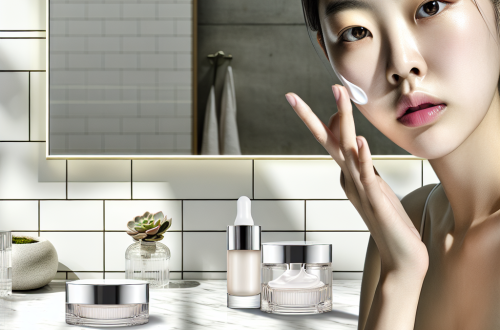The Truth About Anti-Aging Products: What Really Works?
The quest for youthful, vibrant skin has been a pursuit for centuries, driving both ancient remedies and modern science to find solutions that slow the visible effects of aging. Today, the anti-aging market is burgeoning with products claiming to erase wrinkles, lift sagging skin, and restore a youthful glow. However, amidst this vast array of creams, serums, and supplements, discerning which products genuinely work and which are mere illusions of marketing can be challenging. This article explores the efficacy of anti-aging products, backed by scientific research, to unveil what really works in the realm of skincare.
Understanding Skin Aging
Before delving into the products themselves, it’s crucial to understand the processes behind skin aging. Skin aging can be categorized into two types: intrinsic and extrinsic. Intrinsic aging is a natural process that occurs over the years, regardless of external factors. It is characterized by dryness, thinning, and fine wrinkling. Extrinsic aging, on the other hand, is caused by external factors such as UV exposure, pollution, and lifestyle choices like smoking and diet.
Collagen and elastin, two proteins that maintain the skin’s structure and elasticity, decrease in production as we age. This reduction leads to the formation of wrinkles and sagging skin. Additionally, the skin’s ability to retain moisture diminishes, further contributing to aging signs.
The Role of Ingredients in Anti-Aging Products
To genuinely assess the effectiveness of anti-aging products, it is essential to look at the active ingredients they contain. Here are some of the most research-backed ingredients known for their anti-aging properties:
Retinoids
Retinoids, derivatives of vitamin A, are one of the most well-studied and proven ingredients in the realm of anti-aging skincare. They work by promoting cell turnover, stimulating collagen production, and fighting free radicals. Retinoids have been shown to improve skin texture, reduce fine lines and wrinkles, and even out skin pigmentation.
Peptides
Peptides are short chains of amino acids that can penetrate the skin’s top layer and send signals to cells to produce more collagen. Products containing peptides can improve skin barrier function, elasticity, and firmness.
Antioxidants
Antioxidants such as vitamins C and E, ferulic acid, and niacinamide combat free radicals unstable molecules that damage skin cells and accelerate aging. Vitamin C, in particular, is effective in promoting collagen synthesis and lightening hyperpigmentation.
Hyaluronic Acid
Hyaluronic acid is a powerful humectant that can hold up to 1000 times its weight in water. It helps to hydrate the skin, making it look more plump and lively. Regular use of hyaluronic acid can reduce the visibility of fine lines and make the skin appear smoother.
Evaluating the Efficacy of Anti-Aging Creams and Serums
With the right ingredients, anti-aging creams and serums can be effective. However, the formulation and concentration of active ingredients are crucial. For instance, retinoids are available in various forms and strengths, with prescription-strength retinoids generally offering more dramatic results than their over-the-counter counterparts.
It’s also important to remember that no skincare product can reverse aging; they can only improve the appearance of the skin. Consistency and patience are key most products take several weeks to show noticeable effects.
The Truth About Supplements and Devices
In addition to topical products, the market is flooded with dietary supplements and devices claiming to provide anti-aging benefits. Supplements like collagen peptides, resveratrol, and coenzyme Q10 are popular for their purported benefits in skin health. While some studies suggest potential benefits, the evidence is less robust compared to topical treatments.
Similarly, devices such as LED light masks and microcurrent facial toners are marketed as anti-aging miracles. While they may contribute to minor improvements in skin appearance, they are generally not as effective as medical treatments like laser therapy or injectables when it comes to significant anti-aging results.
Practical Tips for Choosing and Using Anti-Aging Products
- Start with a basic skincare routine: Before adding anti-aging products, ensure you have a solid skincare routine that includes cleansing, moisturizing, and sun protection.
- Introduce products gradually: When starting with active ingredients like retinoids or acids, begin slowly to avoid irritation.
- Patch test new products: Always perform a patch test to check for allergies or adverse reactions.
- Consult with a dermatologist: For personalized advice and potent treatments, consulting with a skincare professional is advisable.
In the world of anti-aging skincare, knowledge is power. By understanding the science behind aging and the ingredients that can genuinely make a difference, consumers can make informed choices about the products they use. While no product can stop the aging process, a well-chosen regimen can certainly help in maintaining the skin’s youthful appearance for longer.


